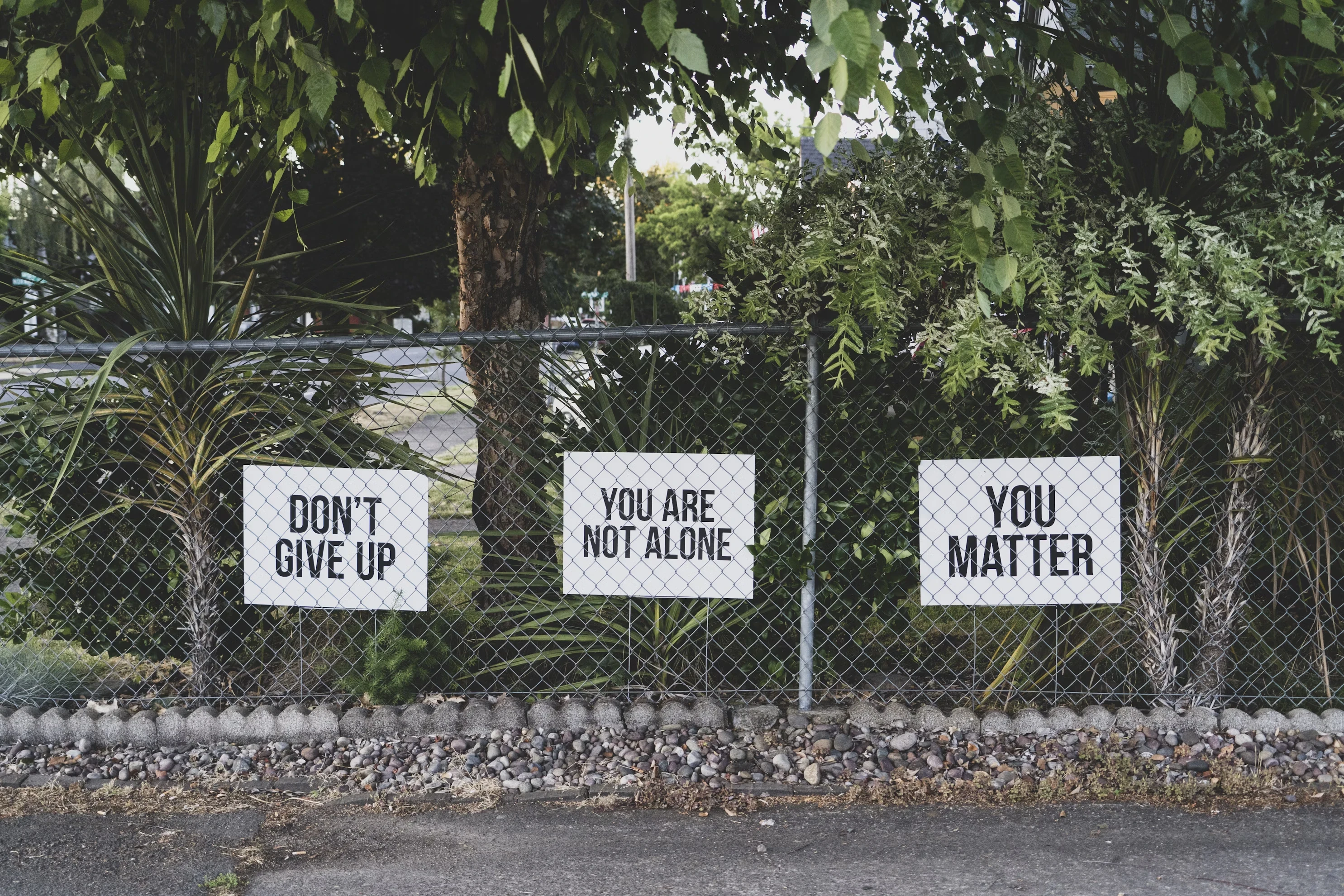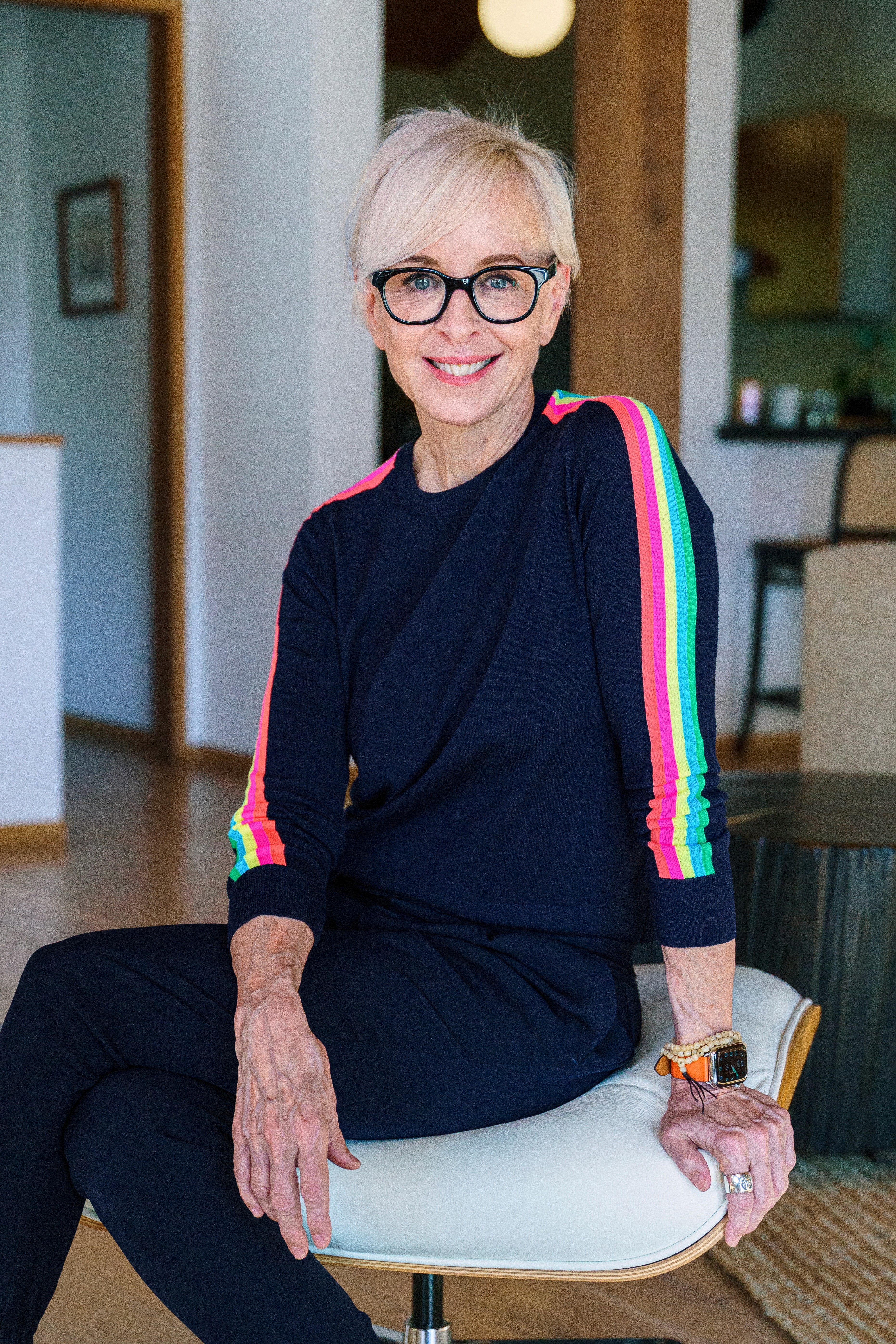As an LGBTQ identified and specialized therapist, one of the most vital aspects of my work is helping individuals navigate the complexities of their identity. Among the gay community, one issue that frequently arises in therapy sessions is internalized homophobia.
This issue, which all gay people face to one degree or another, can have profound effects on mental health and wellbeing. Often it operates below consciousness and directs our life without us even realizing it. But what if I told you that there is such a thing as therapy for homophobia?
At Expansive Therapy, we pride ourselves in specializing in trauma-informed therapy for the LGBTQ community –– which is why, in this article, I'll delve into what internalized homophobia is and offer insights into how it can be addressed effectively in therapy.
Table of Contents
What is Internalized Homophobia?
Addressing Internalized Homophobia in Therapy
Learn How To Challenge Your Internalized Homophobia
What is Internalized Homophobia?
You cannot grow up in our society without experiencing homophobia. It is engrained into the fabric of our culture, our education system, or socialization process, our family values, our religious institutions, etc. Though we have seen great progress in certain areas and in certain parts of the country, homophobia is still alive and well, and it is often so deeply engrained that we are not even conscious of it. That's what we call internalized homophobia.
For example, think of a young girl kissing a young boy on the playground. Then think of a young boy kissing another young boy on the playground. What is the difference between your reaction to both? The difference might be so quick that it gets filtered out of consciousness before you even register it, or you might not want to acknowledge the difference because it is embarrassing so you force it out of consciousness. Chances are, there is some sort of difference in your reaction, and that difference is the result of many years of socialization, broader cultural factors, the legal system, and a lifetime of media representations.
So if we accept that homophobia has always been a part of our lives to some degree, then what is internalized homophobia? This refers to the conscious or unconscious acceptance of those homophobic beliefs by gay people themselves. In other words, all that negative messaging that we receive throughout our lives about gay people gets internalized. We start to believe that there is actually something wrong with gay people, and therefore that there is something wrong with us. These beliefs can become so entrenched in our psyche that we don’t even realize they are there.
The unfortunate truth for gay people is that it is impossible to avoiding some degree of internalized homophobia. The negative messaging is too pervasive, and our family of origins often reinforce homophobic messages instead of fighting against them. There are usually not enough people around us as we grow up that tell us that the problem is out there, not within us, so we internalize that problem. The good news is that once we acknowledge there is a problem, then we can go from surviving to thriving.
In short, internalized homophobia means that our culture’s homophobic beliefs become engrained in us, or held deep within, causing us to feel shame, guilt, and self-hatred. I’ll get into how it shows up, and then how therapy can help to deal with it.
Internalized homophobia can manifest in various ways, including:
Self-Devaluation: LGBTQ individuals may devalue themselves because of their sexual orientation or gender identity, leading to low self-esteem and feelings of unworthiness. Our internal monologue can be intensely negative, and sometimes that internal monologue operates beneath our consciousness and directs many of our decisions.
Fear of Rejection: With good reason, gay and queer people may intensely fear rejection or discrimination from family, friends, or society at large. A history of rejection and discrimination, subtle or overt, causes us to be hypervigilant to future threats. The fears can run so deep that it leads us to hide our true selves in many different ways and avoid authentic, vulnerable relationships.
Internal Conflicts: Different parts of ourselves can become profoundly at odds with each other when we have a good deal of internalized homophobia, creating internal conflict, which creates inner turmoil and anxiety. For example, we might desire a certain type of sex or intimacy which our psyche deems as wrong, setting off an internal battle.
Avoidance of LGBTQ+ Spaces: Some individuals may distance themselves from LGBTQ+ communities or events due to internalized stigma, further isolating themselves.
If you relate to any of these points, you may be asking how to deal with internalized homophobia.
The first step to overcoming internalized homophobia is understanding that this is a deeply personal and often challenging journey, as internalized homophobia can shape how you view yourself and your place within the world. It might influence your relationships, self-esteem, and even your ability to fully embrace your identity. Then, recognizing these feelings is often the next step, but it’s natural to feel uncertain about what to do next. You may ask yourself: How can I unlearn negative beliefs about my identity? What tools or strategies can help me navigate this process? These questions are valid and essential, opening the door to self-awareness and healing.
If you need further support, perhaps therapy could be the right next step for your journey.
Therapy For Internalized Homophobia
Therapy provides a safe and supportive environment for individuals to explore and work through internalized homophobia. Here are some ways that therapy can help:
Psychoeducation: Your therapist can begin by providing basic education around internalized homophobia and its effects on mental health. Psychoeducation can help you start to mentally tease apart what is inherently you from what is learned from societal messaging. Taking it a step further may mean getting more familiarized with a glossary of LGBTQ mental health terms.
Exploration of Beliefs and Values: Awareness is such a huge piece of this work, so your therapist will open up the space to explore your values and beliefs when it comes to your sexual orientation. With a good trusting therapeutic relationship, you will hopefully feel safe enough to share the negative as well as the positive, recognizing that all gay people have held at least some negative beliefs about themselves.
Affirmative Therapy Presence: The presence of the therapist is a crucial part of working through internalized homophobia, which is why seeking out LGBTQ affirming therapy is so important. As opposed to only focusing on the past and the negative experiences of homophobia, affirmative therapy strives to create a safe and affirming relationship in the present between therapist and client to counteract those experiences. Gay affirming therapists are trained to open up a nonjudgmental space where all of your parts are welcome, and where you can be understood and embraced for exactly who you are.
Cognitive-Behavioral Techniques: Cognitive-behavioral techniques can help to identify and challenge negative thought patterns related to internalized homophobia. This modality is all about making our thoughts and beliefs conscious, challenging the evidence for our negative thoughts, and then instituting more positing beliefs. CBT is also about developing coping strategies to manage distressing thoughts and emotions.
Exploring Trauma and Shame: At the core of internalized homophobia are the negative experiences we’ve had in relation to being gay, typically stemming back to childhood. We explore this more in-depth in the blog post titled, "Generational and Historical Trauma."There are the traumatic experiences themselves, and then the shame, self hatred, and self blame that comes in the aftermath. Gay affirming therapy will give you the space to explore these negative experiences and the negative thoughts, beliefs, and feelings that emerged afterwards. A big part of this process is undoing the aloneness with which you went through those original experiences. Feeling your therapist’s empathetic presence while talking about overwhelming experiences can be extraordinarily healing.
Parts Work: Internal Family Systems is a modality of therapy that can be very effective for internalized homophobia because it views each person as a collection of parts instead of having one set identity or personality. While we have one part that loves ourselves, for example, we have another part that hates ourselves. Seeing the shame or self hate as simply a part of us instead of our core identity can be helpful in moving things toward healing. IFS also distinguishes between wounded child parts and protector parts, and what we often see is that the self-hating part is serving some protective role for us, such a protecting us from further abuse, but it is working too hard and clenching too tight. IFS allows the protector parts to be heard and validated so that they can step aside to give room to the wounded child parts that need healing.
Building Self-Acceptance and Resilience: The more we are able to have emotional experiences within the context of a safe and healthy therapeutic relationship, the more resilience and self-esteem we begin to build. We begin to separate our core self from what has been internalized. We can begin to see our core self as inherently okay and good, but we also recognize that we’ve been through a lot and there is a lot of healing work that needs to be done. However, this doesn’t all happen in a linear fashion, this work is gradual and often feels like two steps forward, one step back. We often step back into old patterns because it’s what has felt familiar for so long. It takes time to build new neural pathways and build a better relationship with ourselves.
Family and Relationship Dynamics: Working through internalized homophobia isn’t just about how you were treated in the past as a gay person, it’s also about your present day relationships. Affirming therapy is about establishing which family and intimate relationships feel supportive and which are further contributing to internalized homophobia. Not to say this is always going to be a binary thing, close relationships are always complex, but you may come to find that it’s in your best interest to avoid sharing certain parts of yourself with certain people. Therapy can provide support in navigating coming out to family members, strengthening affirming relationships, and establishing boundaries in unsupportive relationships.
Connecting with the Community: Challenging internalized homophobia is also about connecting with like minded queer people around you. This doesn’t mean forcing anything that doesn’t feel right, but it does mean working through negative thoughts about the community by putting yourself out there and trying new things. LGBTQ affirming therapy is about exploring what parts of the community might align with you and then building up the courage to join those groups, organizations, or activities. Building a sense of belonging and community can counteract feelings of alienation, and solidify and expand the work of individual therapy.
Learn How To Challenge Your Internalized Homophobia
Whether you're dealing with a homophobic therapy, a homophobic home or work environment, or an internal war zone, getting "rid" of homophobia in your life is no easy task.
Internalized homophobia is a very difficult thing to deal with, but take comfort in knowing that all gay people have felt it and it is possible to work through it. The most important thing is that you don’t hold it alone and find support that is right for you. Gay affirming therapy can be a great place to do that hard work of making conscious and working through internalized homophobia.
At Expansive Therapy, this is one of our core specialties and we pride ourselves on helping the gay community become their truest, most empowered selves. Contact us today to get started on your journey.
Therapy For Internalized Homophobia
Therapy provides a safe and supportive environment for individuals to explore and work through internalized homophobia. Here are some ways that therapy can help:
Psychoeducation: Your therapist can begin by providing basic education around internalized homophobia and its effects on mental health. Psychoeducation can help you start to mentally tease apart what is inherently you from what is learned from societal messaging. Taking it a step further may mean getting more familiarized with a glossary of LGBTQ mental health terms.
Exploration of Beliefs and Values: Awareness is such a huge piece of this work, so your therapist will open up the space to explore your values and beliefs when it comes to your sexual orientation. With a good trusting therapeutic relationship, you will hopefully feel safe enough to share the negative as well as the positive, recognizing that all gay people have held at least some negative beliefs about themselves.
Affirmative Therapy Presence: The presence of the therapist is a crucial part of working through internalized homophobia, which is why seeking out LGBTQ affirming therapy is so important. As opposed to only focusing on the past and the negative experiences of homophobia, affirmative therapy strives to create a safe and affirming relationship in the present between therapist and client to counteract those experiences. Gay affirming therapists are trained to open up a nonjudgmental space where all of your parts are welcome, and where you can be understood and embraced for exactly who you are.
Cognitive-Behavioral Techniques: Cognitive-behavioral techniques can help to identify and challenge negative thought patterns related to internalized homophobia. This modality is all about making our thoughts and beliefs conscious, challenging the evidence for our negative thoughts, and then instituting more positing beliefs. CBT is also about developing coping strategies to manage distressing thoughts and emotions.
Exploring Trauma and Shame: At the core of internalized homophobia are the negative experiences we’ve had in relation to being gay, typically stemming back to childhood. We explore this more in-depth in the blog post titled, "Generational and Historical Trauma."There are the traumatic experiences themselves, and then the shame, self hatred, and self blame that comes in the aftermath. Gay affirming therapy will give you the space to explore these negative experiences and the negative thoughts, beliefs, and feelings that emerged afterwards. A big part of this process is undoing the aloneness with which you went through those original experiences. Feeling your therapist’s empathetic presence while talking about overwhelming experiences can be extraordinarily healing.
Parts Work: Internal Family Systems is a modality of therapy that can be very effective for internalized homophobia because it views each person as a collection of parts instead of having one set identity or personality. While we have one part that loves ourselves, for example, we have another part that hates ourselves. Seeing the shame or self hate as simply a part of us instead of our core identity can be helpful in moving things toward healing. IFS also distinguishes between wounded child parts and protector parts, and what we often see is that the self-hating part is serving some protective role for us, such a protecting us from further abuse, but it is working too hard and clenching too tight. IFS allows the protector parts to be heard and validated so that they can step aside to give room to the wounded child parts that need healing.
Building Self-Acceptance and Resilience: The more we are able to have emotional experiences within the context of a safe and healthy therapeutic relationship, the more resilience and self-esteem we begin to build. We begin to separate our core self from what has been internalized. We can begin to see our core self as inherently okay and good, but we also recognize that we’ve been through a lot and there is a lot of healing work that needs to be done. However, this doesn’t all happen in a linear fashion, this work is gradual and often feels like two steps forward, one step back. We often step back into old patterns because it’s what has felt familiar for so long. It takes time to build new neural pathways and build a better relationship with ourselves.
Family and Relationship Dynamics: Working through internalized homophobia isn’t just about how you were treated in the past as a gay person, it’s also about your present day relationships. Affirming therapy is about establishing which family and intimate relationships feel supportive and which are further contributing to internalized homophobia. Not to say this is always going to be a binary thing, close relationships are always complex, but you may come to find that it’s in your best interest to avoid sharing certain parts of yourself with certain people. Therapy can provide support in navigating coming out to family members, strengthening affirming relationships, and establishing boundaries in unsupportive relationships.
Connecting with the Community: Challenging internalized homophobia is also about connecting with like minded queer people around you. This doesn’t mean forcing anything that doesn’t feel right, but it does mean working through negative thoughts about the community by putting yourself out there and trying new things. LGBTQ affirming therapy is about exploring what parts of the community might align with you and then building up the courage to join those groups, organizations, or activities. Building a sense of belonging and community can counteract feelings of alienation, and solidify and expand the work of individual therapy.
Learn How To Challenge Your Internalized Homophobia
Whether you're dealing with a homophobic therapy, a homophobic home or work environment, or an internal war zone, getting "rid" of homophobia in your life is no easy task.
Internalized homophobia is a very difficult thing to deal with, but take comfort in knowing that all gay people have felt it and it is possible to work through it. The most important thing is that you don’t hold it alone and find support that is right for you. Gay affirming therapy can be a great place to do that hard work of making conscious and working through internalized homophobia.
At Expansive Therapy, this is one of our core specialties and we pride ourselves on helping the gay community become their truest, most empowered selves. Contact us today to get started on your journey.










